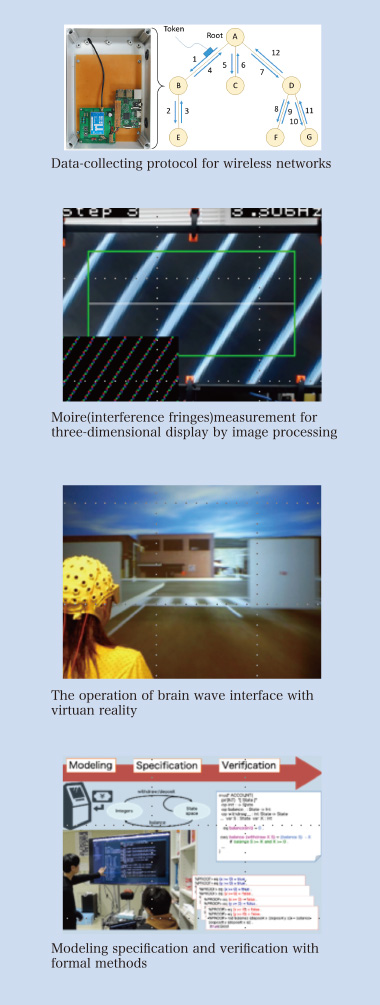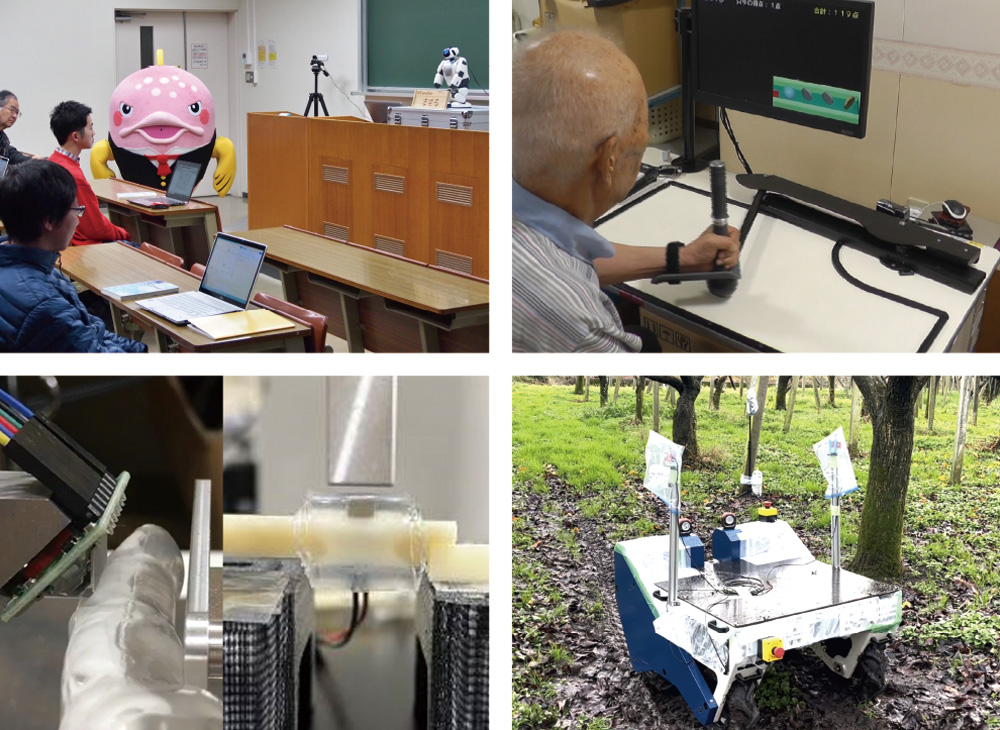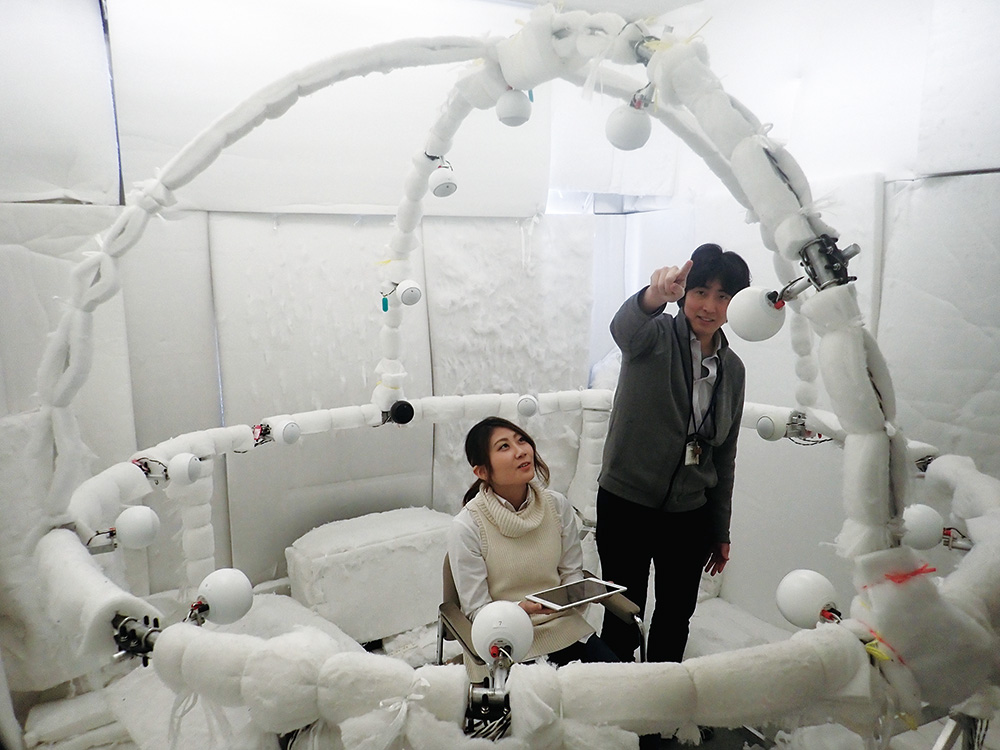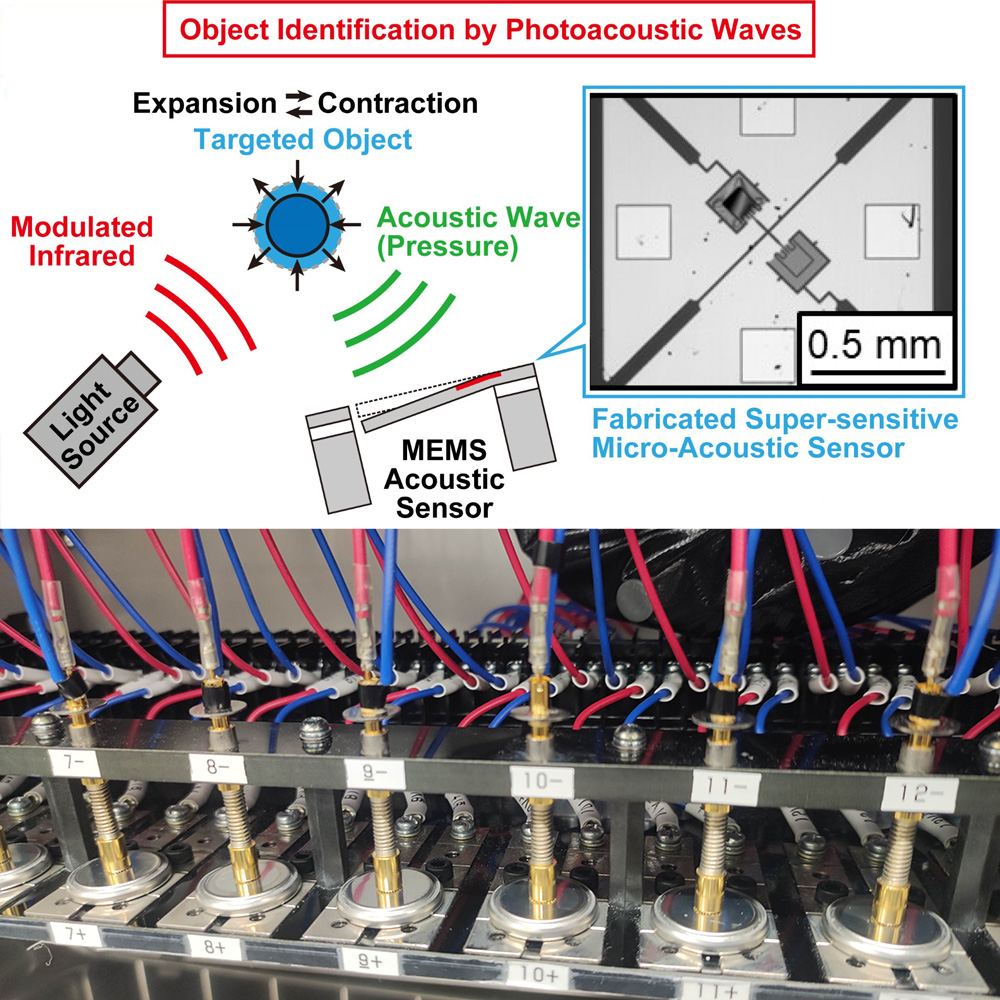Faculty of Information Engineering
The Faculty of Information Engineering has three departments: the Department of Data Science, the Department of Information Systems Engineering and the Department of Intelligent Robotics. This faculty is at the forefront of research in the field of information and is aiming to lead future advancements. Our focus is on nurturing talented individuals who will contribute significantly to society through their expertise in this area.
Department of Data Science
Data science is a new academic field based on statistics and informatics. We promote data scientists with the mathematical ability to read and explain big data based on statistics and the technical ability to collect, organize, and process data using computers and programming. Furthermore, we offer a program that provides researchers and engineers with advanced expertise, allowing them to collaborate in teams to create new value from data and discover and solve problems in society.
Systems Science
- Mathematical analysis of nonlinear coupled systems
- Design and optimization in reward-driven systems
- Fundamental technologies for decision support based on data science
- Analysis and prediction of traffic accident factors by big data analysis
- Quantitative evaluation of transportation infrastructure by multi-agent simulation
- Visualization and optimization through modeling of steel and aluminum production processes
- Elucidation of protein function and development in manufacturing technology using machine learning

Simulation of traffic behavior by multi-agent techniques 
Mathematical modeling and decision making
Intelligent Information Science
- Development of an intelligent drawing support system by developing a new graphics language to enable visually impaired people to create diagrams independently
- Development of technology to support efficient learning methods based on learning process data
- Development of methods for estimating internal states such as emotions and intentions using biometric data
- Development and evaluation of autonomous mobile robot intelligence that adapts to maintain its distance with a human group
- Development of a forest 3D mapping system using LiDAR and drones

Spatial distribution of viewpoints 
Hierarchical structure of answer history data
Department of Information Systems Engineering
The Department of Electrical and Electronic Engineering offers two courses, the “Integrated and Functional Devices Engineering” and “Electronic and Communication Systems Engineering.” These equip students with the basic and advanced knowledge and skills in the field of electrical and electronic engineering, supported by a systematic curriculum and state-of-the-art research projects.
1 Fundamental Information Engineering
- Algorithms that efficiently find solutions
to difficult problems - Effective and efficient management and operation
of electrical and information systems - Theory to enhance the reliability and security
of electrical and information systems - Image processing system for moving videos
to make them easy to view - Nonstop video transmission system using
multiple routes and video processing
2 Information Systems Engineering
- Processing of enormous data gathered from
multiple sensors, terminals, devices, etc. - Formal methods for specification and verification
of dependable software and hardware systems - Development of the system methodology
including modeling and optimization and its
application to biological, man-machine and
social systems - Acceleration of systems by parallel processing
using graphics processing units (GPUs) - Human information engineering and psychology
with virtual reality - Bio-signal and brain information analyses using
machine learning techniques - Visualization of human information using
bio-signal processing such as electrocardiogram,
electroencephalogram, and electromyogram, etc. - Mathematical modeling of the biological
time-series using stochastic differential equations - Development of information systems
for safe living of elderly - Development of sensor-based systems supporting
nursing and rehabilitation

Department of Intelligent Robotics
The Department of Intelligent Robotics aims to realize intelligent robots that can be used in daily life and in industry. This requires the fusion of intelligence from information engineering, with systems that integrate machinery and electronic devices; the combination of these is the multidisciplinary field of robotics. Our department combines robot-related engineering based on the three fields of information engineering, mechanical engineering, and electronic engineering, together with elements of data science, to conduct research that will lead to innovative science and technology.
Functional Robotics

We conduct research that leads to the creation of intelligent robots required in the next generation, by integrating highly functional hardware (high-safety actuators, biomimetic sensors, outdoor robots) and intelligent information processing software (human-robot cooperative control, remote control, AI).
Intelligent Interface Engineering

We humans use the information received through our five senses to understand our surroundings, decipher the messages we receive, and decide what actions to take next. Computers and robots, however, are not good at grasping situations and deciding on actions in this way. Our research aims to elucidate the flexible and superior information processing capabilities of humans, such as vision, hearing, speech, and gesture; and to realize interfaces that make computers and robots as smart as humans.
Precision Engineering
We conduct research on material processing, measurement, and metrology, by applying physical and chemical phenomena unique to the micro- and nano-meter range. The following are examples of our research activities.
- Development of automated production systems for machining aircraft and automobile parts in place of human labor, and research on the precision machining technology that is an element of such systems
- Production systems that collaborate with robots
- Measurement of displacement, angle, and shape using the wave/particle nature of light
- Development of ultra-sensitive sensors and intelligent measurement systems, and research on their uncertainty
- Three-dimensional precision measurement for medical and nursing care
Intelligent Electronic Device

We conduct research on the development and application of innovative microsensor technology and semiconductor devices needed for future robot technology.
- Acoustic sensors that can constantly monitor health conditions such as blood sugar level and blood pressure
- Research on lithium-ion batteries using semiconductor nanomaterials made from rice husks
- Force sensors that measure the motion of living beings of various sizes from humans to microorganisms
- Development of new semiconductor and electronic materials using quantum chemical calculations



